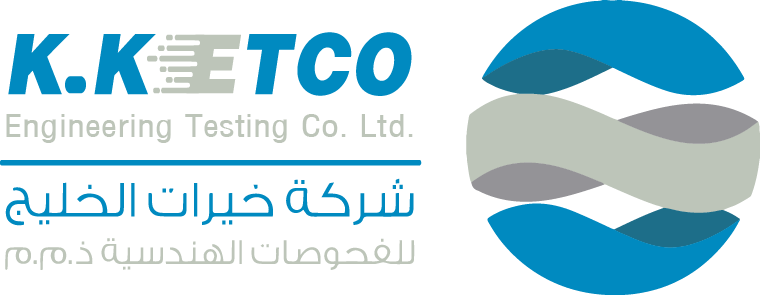We provide our clients with one of the most comprehensive inspection services available in the region. From general and conventional inspection techniques to advanced inspection technologies, we are uniquely positioned to provide a robust inspection service.
With over 20 years of experience in providing reliable, high-quality inspection solutions across multiple industries, we have the tools and expertise needed to solve the toughest NDT inspection challenges to help the client get the most value out of NDT solutions, allowing him to achieve the efficiency, accuracy, and safety.
Industries We Serve
Oil Refineries
and Oil Plants
Natural Gas Pipeline
Natural Gas
Plants
Building and Bridges
Water
Plants
Oil
Pipeline
Compressor Stations
Oil, Gas and Water Tanks
Aircrafts and
Components
Petrochemical Industries
Power Generation Facilities
We’re providing technical solution
NON-DESTRUCTIVE TESTING
Many of modern construction projects and industrial facilities involve more complicated structures and severe working conditions than ever, therefore, any deficiencies or defects, no matter how small they seem to be, can lead to catastrophic accidents.
So, engineering testing was a must, but, for economic considerations, it needs to be done on-site and with as limited damages
as possible; here comes the need for non-destructive testing procedures.
As the name implies, non-destructive testing means conducting engineering examinations in order to detect any discontinuities within metallic or non-metallic materials, depending on the change of some physical properties, such as acoustic, magnetic and radiographic properties. Checking for welds defects is one of the most common applications of NDT techniques, since welds represent points of
weakness and they often contain various types of flaws, for instance, cracks, porosity, splatter, undercut and soon.
Here are the NDT methods that we provide:
CONVENTIONAL NDT
A non-destructive testing technique that uses various types of video probes, video borescopes, remotely operated cameras, robotic crawlers, and other specialized tools in order to remotely examine components for corrosion and damage
A non-destructive testing technique that uses various types of video probes, video borescopes, remotely operated cameras, robotic crawlers, and other specialized tools in order to remotely examine components for corrosion and damage
A non-destructive testing technique that uses various types of video probes, video borescopes, remotely operated cameras, robotic crawlers, and other specialized tools in order to remotely examine components for corrosion and damage
Liquid penetrant test is a nondestructive test method which
does not harm the samples or parts being inspected.
The test is very effective in detecting porosity, cracks, fractures, laps, seams and other flaws that are open to the surface of the test piece and may be caused by fatigue, impact, quenching, machining, grinding, forging, bursts, shrinkage or overload.
Scientific basis: DPI is based upon capillary action, where low surface tension fluid penetrates into clean and dry surface-breaking discontinuities.
Liquid penetrant test is a nondestructive test method which
does not harm the samples or parts being inspected.
The test is very effective in detecting porosity, cracks, fractures, laps, seams and other flaws that are open to the surface of the test piece and may be caused by fatigue, impact, quenching, machining, grinding, forging, bursts, shrinkage or overload.
Scientific basis: DPI is based upon capillary action, where low surface tension fluid penetrates into clean and dry surface-breaking discontinuities.
Liquid penetrant test is a nondestructive test method which
does not harm the samples or parts being inspected.
The test is very effective in detecting porosity, cracks, fractures, laps, seams and other flaws that are open to the surface of the test piece and may be caused by fatigue, impact, quenching, machining, grinding, forging, bursts, shrinkage or overload.
Scientific basis: DPI is based upon capillary action, where low surface tension fluid penetrates into clean and dry surface-breaking discontinuities.
Positive material identification is an essential non-destructive
testing (NDT) method utilized to verify that supplied materials
conform to the proper standards and specifications.
As a result, assurance can be gained that the chemical makeup of the metallic parts has the correct percentage
of key elements.
Scientific basis: The exposed material reflects the radiation,
generating energy. As every element has it’s own atomic
structure, this reflection will generate a different energy level for every element. This energy is measured and detected, thus
identifying the alloy elements.
Positive material identification is an essential non-destructive
testing (NDT) method utilized to verify that supplied materials
conform to the proper standards and specifications.
As a result, assurance can be gained that the chemical makeup of the metallic parts has the correct percentage
of key elements.
Scientific basis: The exposed material reflects the radiation,
generating energy. As every element has it’s own atomic
structure, this reflection will generate a different energy level for every element. This energy is measured and detected, thus
identifying the alloy elements.
K.KETCo provides ferrite testing service, it is fast, cost-effective, ferrite testing helps to find the accurate measure of austenitic and duplex stainless steels.
We perform Pressure Testing to ensure the integrity of the pressure shell on new pressure equipment, or on previously installed pressure and piping equipment that has undergone an alteration or repair to its boundary.
We perform Pressure Testing to ensure the integrity of the pressure shell on new pressure equipment, or on previously installed pressure and piping equipment that has undergone an alteration or repair to its boundary.
We perform Pressure Testing to ensure the integrity of the pressure shell on new pressure equipment, or on previously installed pressure and piping equipment that has undergone an alteration or repair to its boundary.
ADVANCED NDT
New and advanced NDT techniques are continually under development for the sake of more accuracy and more convenience.
Advanced NDT techniques that we utilize include:
Time of Flight Diffraction (TOFD) is an innovative ultrasonic technique, based on the phenomenon of time traveled through a diffracted sound wave. This technique senses and analyzes the diffracted sound according to the times at the extremes (top and bottom) and to the existing discontinuities inside a welding.
PAUT is an advanced non-destructive examination technique that uses ultrasonic probes capable of pulsing elements individually at different time intervals. Compared with conventional ultrasonic tests, PAUT provides higher probability of detection, it is faster, more reliable, and it provides 2D or 3D images and a permanent record of the inspection through the data recorded.
Digital Radiography encompasses multiple kinds of advanced
radiographic inspections that utilize digital imaging rather than traditional film; it’s safer and more accurate.
Precise and expeditious automated ultrasonic inspection of small-bore piping welds in hard to reach areas ensures the high functionality and operational safety for a wide range of industrial equipment.
Precise and expeditious automated ultrasonic inspection of small-bore piping welds in hard to reach areas ensures the high functionality and operational safety for a wide range of industrial equipment.
Precise and expeditious automated ultrasonic inspection of small-bore piping welds in hard to reach areas ensures the high functionality and operational safety for a wide range of industrial equipment.
Precise and expeditious automated ultrasonic inspection of small-bore piping welds in hard to reach areas ensures the high functionality and operational safety for a wide range of industrial equipment.
Precise and expeditious automated ultrasonic inspection of small-bore piping welds in hard to reach areas ensures the high functionality and operational safety for a wide range of industrial equipment.
Precise and expeditious automated ultrasonic inspection of small-bore piping welds in hard to reach areas ensures the high functionality and operational safety for a wide range of industrial equipment.
Quality Consultation Services

Preparation and Conducting Employee Training Programs and Seminars
K.KETCo. Ltd prepares professional training programs for personnel who work in quality control field, especially in the area of non-destructive testing, making use of our expert advisors’ expertise in this field.
Procedures and Specifications Preparations
Our extensive experience allows us to prepare testing procedures to be followed in a workplace, as well as specifications that should be met by inspectors.
Quality Systems Review
We also provide the service of reviewing and checking the performance of quality systems to help other companies improve their quality control results

Welder/Welding procedure qualifications
- Procedures and Specifications Preparations
K.KETCo. prepares welding procedures and welders qualification procedures in compliance with international standards and welding codes.
- Test monitoring
We monitor testing practices on welds to make sure that everything is done as per the code requirements.
- Destructive & non-destructive testing
Sometimes it is required to conduct both destructive and
non-destructive testing on some welded parts;
K.KETCo. performs all types of examinations and guarantees that
all parts of a project are sound and flawless.
- Documents preparation & review
Preparation and reviewing of documents is also a part of the services we provide in the area of welding.
PWHT (POST WELD HEAT TREATMENT
KKETCO have a professional department capable to perform heat treatment activities for the welded joints, plates and casting including Post weld heat treatment for the welding, annealing, tempering and normalizing.
KKETCO engineers participated in several training courses and perform thousands of heat treatment activities in refineries, power station, petrochemical plant & Prepare the work procedures according to the material type, thickness, shapes, sizes & WPS.
Evaluate the heat treatment activities depending upon the recorded (time —temperature) charts and hardness values.


KKETCO have all equipment with high technology from weldotherm (stander Europe, 45,82,130) KVA) with deferent sized and shapes of heating mats and coils to cover our piping, tanks, pressure vessel PWHT work with valid calibration certificates and have the required accessories such as thermo cables, insulation materials, spot weld machine …. etc.
KKETCO perform big projects in Iraq in high quality in the pipelines, flow lines, power plants and Refineries.
Perform the hardness measurement for the metal around heat treated zones.
KKETCO have all safety instructions, risk analysis document, PPE, Safety instruments and signs required.
CHATODIC PROTECTION (CP)
KKETCO. is highly experienced the Design, Installation and commissioning of complete cathodic protection systems for:
- Under Ground Pipeline.
- Temporary CP systems.
- Permanent CP systems.
- Tank Farm (Both internal & external).
- Off-Shore Structures.
- Scraper launcher, receiver traps & buried steel valves.
- Substations and Power Stations grounding systems.
KKETCO is specialist company in perform repairing , testing and
commissioning for Total Plants Cathodic Protection System in both types (ICCP and SACP and Performs all activities according to International standards and applied codes to ensure high quality). KKETCO have test Equipment and construction equipment from western origin and (calibrated periodically)
KKETCO perform both types of CP systems:
– Impressed current cathodic protection system (ICCP)
– Sacrificial anodes cathodic protection system (SACP)

KKETCO offer the following services in the field of Cathodic Protection:
- Soil resistivity Measurements and profiling.
- Cathodic protection Systems design.
- Assessment and recalculation of existing CP systems.
- Materials Supply, from highly reputable European suppliers.
- Installation of Cathodic Protection Systems.
- Test and Commissioning of Cathodic Protection Systems.
- Cathodic Protection Interference and Mitigation investigations.
- AC interference and Mitigation Studies.
- Our company is also in the position to carry out Close Interval Potential surveys for both existing and new pipelines.

